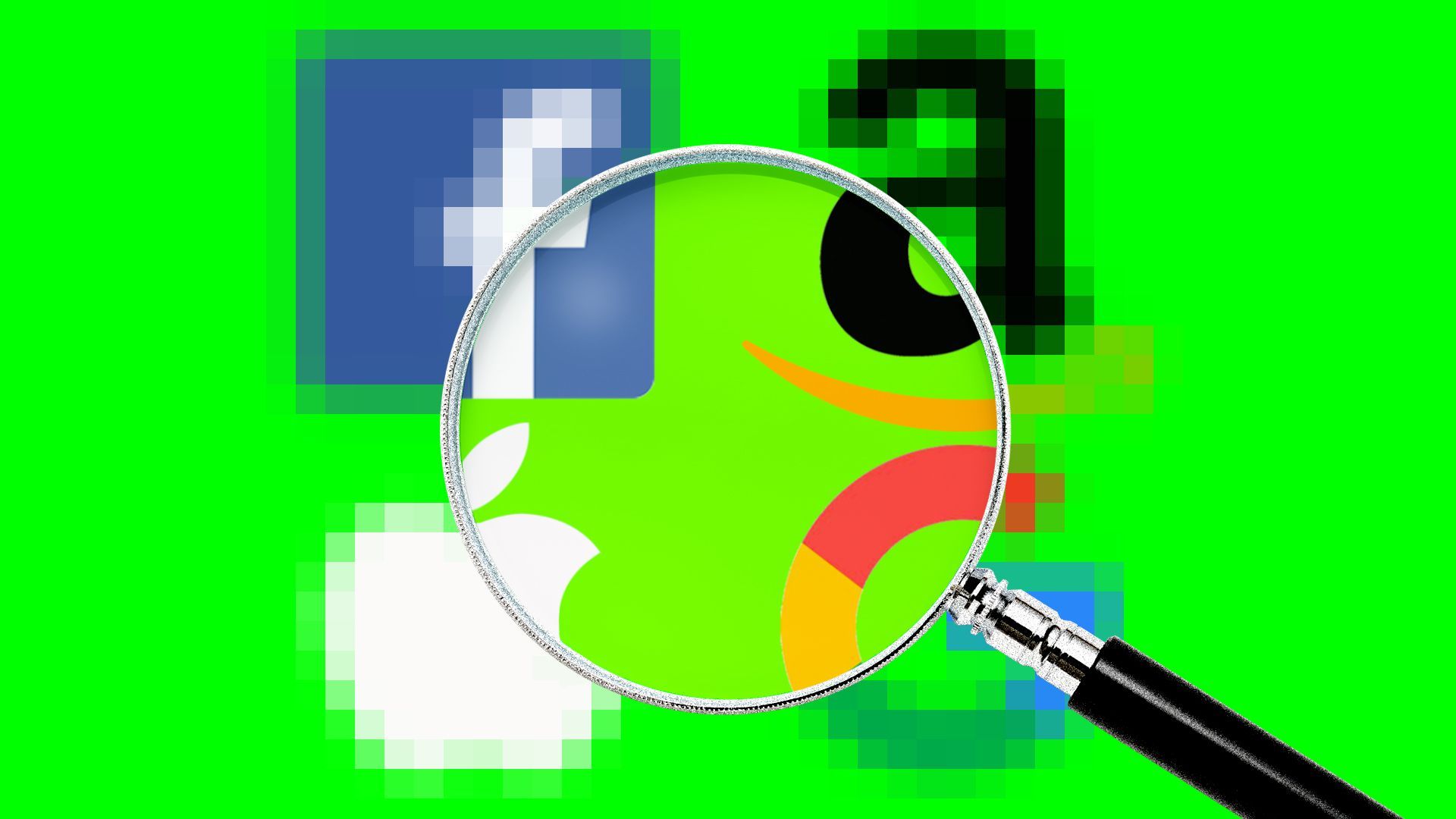Congress vs. tech's gang of four
Add Axios as your preferred source to
see more of our stories on Google.

Illustration: Sarah Grillo/Axios
The CEOs of tech's four leading giants will defend their industry's growing concentration of power from critics on both right and left who view them as monopolists when they testify, most likely virtually, before Congress on July 27.
Why it matters: The joint appearance by Facebook's Mark Zuckerberg, Apple's Tim Cook, Amazon's Jeff Bezos and Google's Sundar Pichai will mark a historic collision between the leaders of an industry that has changed the world and political leaders who believe those changes have harmed democracy and individual rights.
This quartet of CEOs has never shared a stage — and thanks to the pandemic they are unlikely to do so when they answer questions from members of the House Judiciary's antitrust subcommittee.
- The medium of the event itself — like so many pandemic-era events, it's expected to take place via internet videoconference — is a sign of how profoundly the tech industry has reshaped public life.
Background: The last time Congress took on Big Tech at this level was in April 2018, when Zuckerberg appeared before committees from both House and Senate to defend Facebook in the wake of the Cambridge Analytica data privacy scandal and questions about its role in the 2016 election.
- Pichai also testified before House Judiciary in Dec. 2018 about charges Google is biased against conservatives.
- Cook testified about Apple's taxes before the Senate's Permanent Committee on Investigations in 2013.
- Bezos has never before appeared on the Hill.
These CEOs follow in a long line of powerful industry leaders who have volunteered to take their lumps before lawmakers in hope of forestalling punitive legislation and winning over the public.
- Bank CEOs and pharma CEOs both testified before Congress in group panels in 2019.
- In 2008, CEOs of the big three U.S. automakers showed up for several hearings related to financial-crisis bailouts, and faced criticism for flying in on private jets.
- Oil CEOs defended record profits at a 2005 hearing.
- In previous eras, Congress hauled in John D. Rockefeller, J.P. Morgan and Andrew Carnegie.
The appearances don't always pay off.
- Bill Gates' defiant, sometimes contemptuous Senate testimony in 1998 helped ensure that Microsoft would end up targeted with a federal antitrust lawsuit.
- When seven tobacco company CEOs told Congress in 1994 that cigarettes aren't addictive, they cemented a reputation for deception.
How it will work: The format for the tech hearing has not yet been finalized, according to several sources, but the most likely scenario right now is testimony from all four CEOs on the same panel, rather than one after another.
- We're unlikely to see photos of the CEOs lined up in front of microphones with congressional inquisitors arced around them. Instead, they'll be in the same video rectangles the rest of us get to inhabit today.
- The plans are already drawing criticism. House Judiciary Committee ranking member Jim Jordan (R-Ohio) demanded that the hearing be held before the full committee, rather than the antitrust subcommittee, in a letter to committee chairman Jerrold Nadler Tuesday.
Of note: Microsoft, the target of Washington's relentless scrutiny 20 years ago, is no longer grouped with the other companies as a target for inquiry.
- This is either a sign of Microsoft's latter-day success at finding accommodation with regulators and the public, an indication that the company isn't the dominant force it once was — or, most likely, a bit of both.
Our thought bubble: Steve Jobs never testified before Congress.

